Nurturing buffaloes and dreams: Cattle farmer in Nueva Ecija proves profitability of buffalo farming
By James Tababa
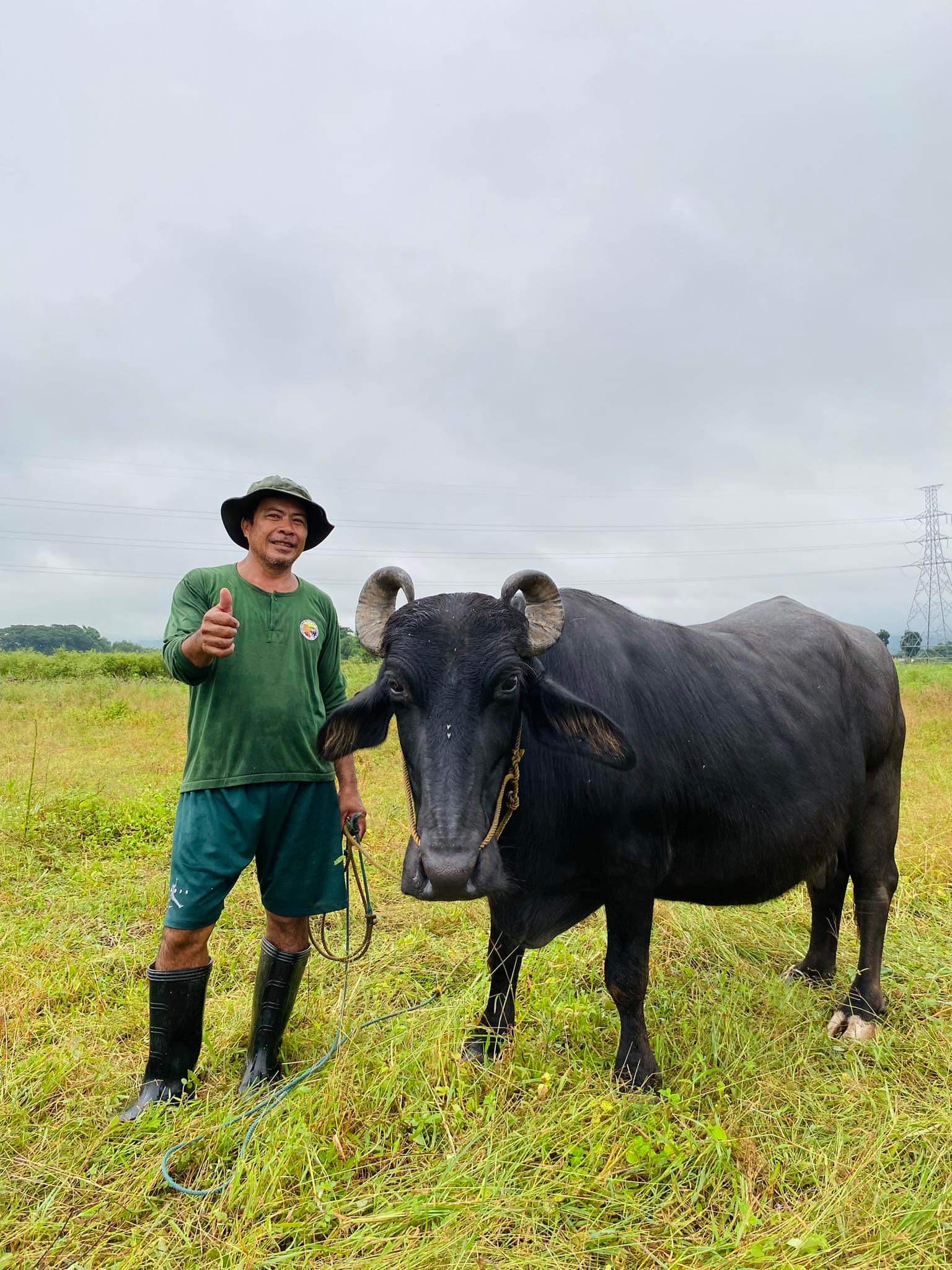
Samuel Mercader is a 48-year-old farmer who owns Mercader’s Dairy Farm in Brgy. San Agustin, San Jose City, Nueva Ecija. Despite not having the opportunity to pursue a formal education, Samuel's determination and hard work led him to become a successful dairy farmer. He worked as a laborer on various farms while also taking up construction work as a sideline. These efforts were necessary to earn extra income and support his family's daily expenses. In the year 2000, he was selected as a recipient of a dairy buffalo or gatasang kalabaw from the Eastern Primary Multi-Purpose Cooperative in San Jose City, Nueva Ecija, an initiative assisted by the Department of Agriculture Philippine Carabao Center.
In 2010, Samuel formally applied to become a member of the cooperative, believing that they could help him enhance his knowledge in caring for dairy buffaloes. “Through the initiative of the PCC to further develop carabao farming in the Philippines, I was blessed with five purebred dairy buffaloes from the PCC under a paiwi contract in the year 2012,” he said in Taglish.
A "paiwi contract" is a type of agreement or arrangement commonly used in agriculture, particularly in livestock farming. In this contract, a provider lends or leases their animals to a farmer for a specific period. The farmer takes care of the animals and is responsible for their well-being, including feeding, housing, and healthcare. In return, the farmer gets to keep a portion of the offspring or the income generated by the animals.
In the same year, Samuel's spouse, Erlinda, also became a member of the cooperative, and in 2021, their eldest child, Sharmaine, followed suit. Samuel currently serves as the Chairman of the cooperative.
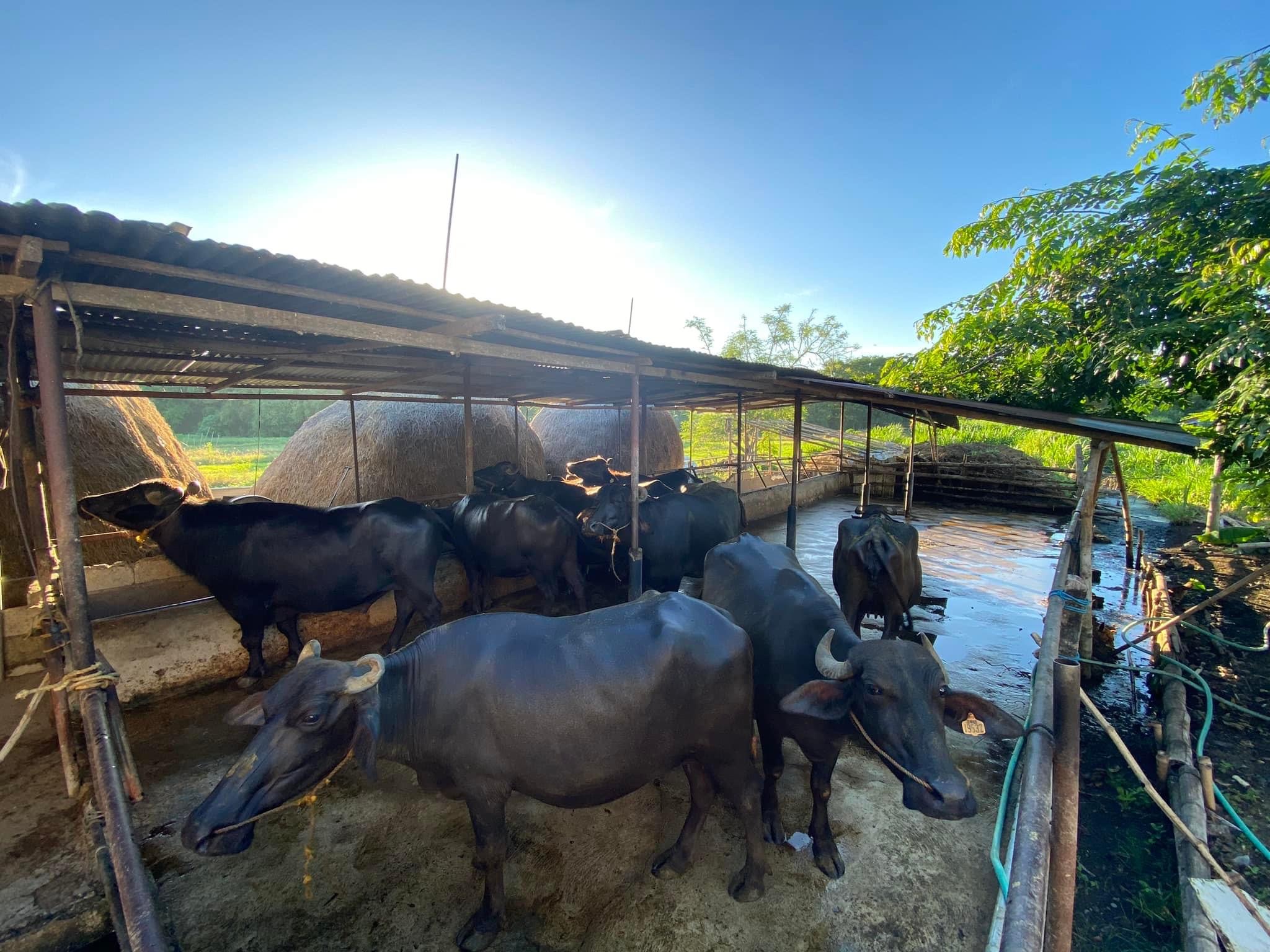
The family manages various activities on the farm, which include milking the buffaloes and delivering the milk to the cooperative, feeding the animals, maintaining animal records, and cleaning the animal pens.
Samuel Mercader's farm is home to a total of 25 purebred dairy buffaloes and five dairy cattle. Among them are one senior bull, eight pregnant cows, six lactating cows, five heifers, three female cattles, and two young bulls. Additionally, five pregnant dairy cattle from the National Dairy Authority (NDA) are on the farm. With their six lactating cows, they are able to collect 25 to 30 liters of milk daily, which they sell to the cooperative at a price of 80 pesos per liter.
Through hard work, dedication, and a strong sense of responsibility, Samuel managed to create opportunities for his children that he did not have. “I am very proud, and this is my accomplishment in life,” he said. “Even though I wasn't able to finish my own education, I was able to support and educate my children.”
Samuel was able to send his eldest child, Sharmaine, to college, where she successfully graduated with a Bachelor of Science in Computer Science. Their second child, Sherwin, is now an Artificial Insemination Technician while their third child, Sharlene, is currently pursuing a Bachelor of Science in Agribusiness. Their youngest child, Sharina, is in grade 7.
Growth and achievements
In 2017, Samuel was honored with the "Outstanding Dairy Buffalo Farmer (Semi-commercial category)" award by the DA-PCC during the 3rd National Carabao Conference. In 2018, Erlinda was recognized with the "Outstanding Juana sa Kalabawan" award.
“Due to our dedication to caring for dairy buffaloes and with the guidance of the Lord, I was able to buy a motorcycle, a tricycle, and a vehicle,” Samuel said. “I also invested in farm machinery and agricultural land where I grow onions, napier grass, corn, and sweet potatoes, which can also serve as food for the buffaloes.”
Best farming practices for success
One of the practices implemented on Samuel’s farm is their buffalo breeding method. He follows a careful approach to ensure the well-being of their buffaloes. “After a buffalo gives birth, we ensure that at least 45 to 60 days have passed before we proceed with getting her pregnant again,” he said.
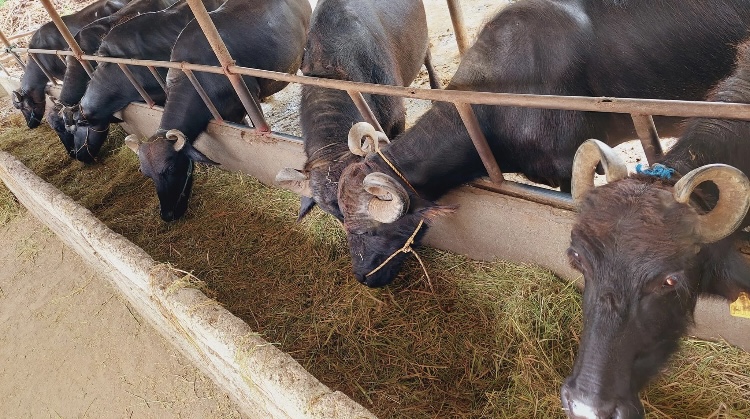
This practice of allowing a gap of 45 to 60 days between calving and breeding is essential for the health and reproductive success of the buffalo. Giving the buffalo an adequate recovery period after giving birth allows her body to regain strength, replenish nutrients, and ensures that she is in optimal condition for the next pregnancy.
Additionally, Samuel is monitoring the animals in heat daily to determine the readiness of their dairy buffaloes for breeding. This regular observation plays an important role in identifying the optimal time for mating, maximizing the chances of successful conception and pregnancy.
Moreover, “We prioritize the strict adherence to dairy safety regulations to prevent the occurrence of diseases among our buffaloes, such as Mastitis, tuberculosis, and leptospirosis,” he said.
Overcoming challenges
One of the most challenging periods for Samuel Mercader's farm was during the pandemic when all their primary milk markets abruptly closed. “We had no choice but to advertise our dairy products through social media and coordinate with local government units (LGUs) for milk feeding programs,” he said.
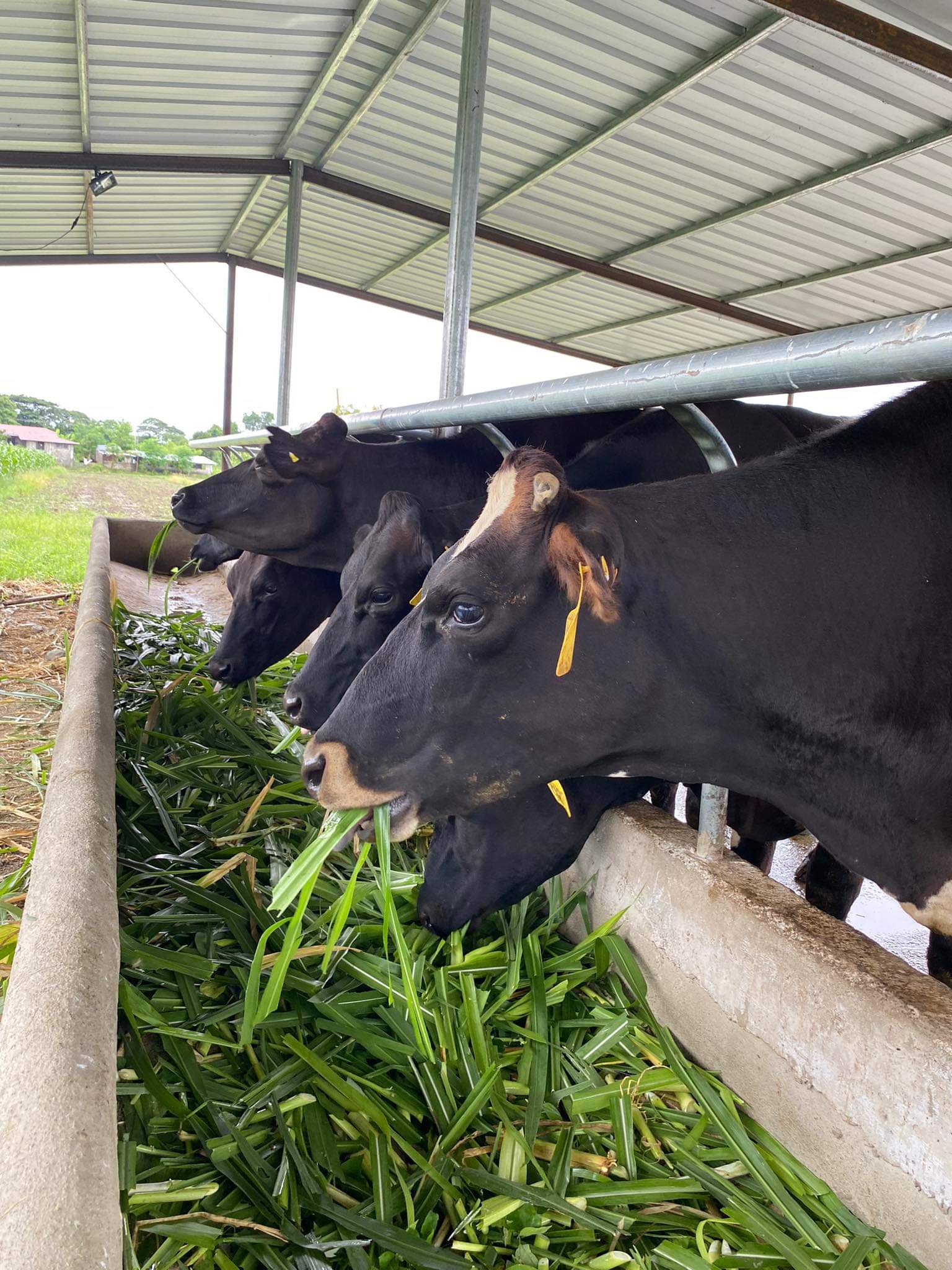
Despite the challenges, Samuel still collaborated with local government units (LGUs) to implement milk feeding programs. By partnering with the LGUs, they were able to help and provide their dairy products for various feeding initiatives during the pandemic.
Samuel and his family are committed to the continuous improvement and development of their farm. “We continuously develop our farm through the training sessions conducted by the PCC (Philippine Carabao Center), which significantly enhances our knowledge in caring for buffaloes,” Samuel said.
Impact on the community
As a small farmer, Samuel recognizes the significant impact his operations have on his community, particularly in terms of providing employment opportunities. “We have been able to offer jobs to the youth in our community who were previously unemployed,” he said. “These young individuals have found sideline work on our farm, allowing them to earn a living and support themselves.”
Furthermore, within their cooperative, they hire employees to manage the processing of milk and carabao milk-enhanced pastries during milk feeding programs.
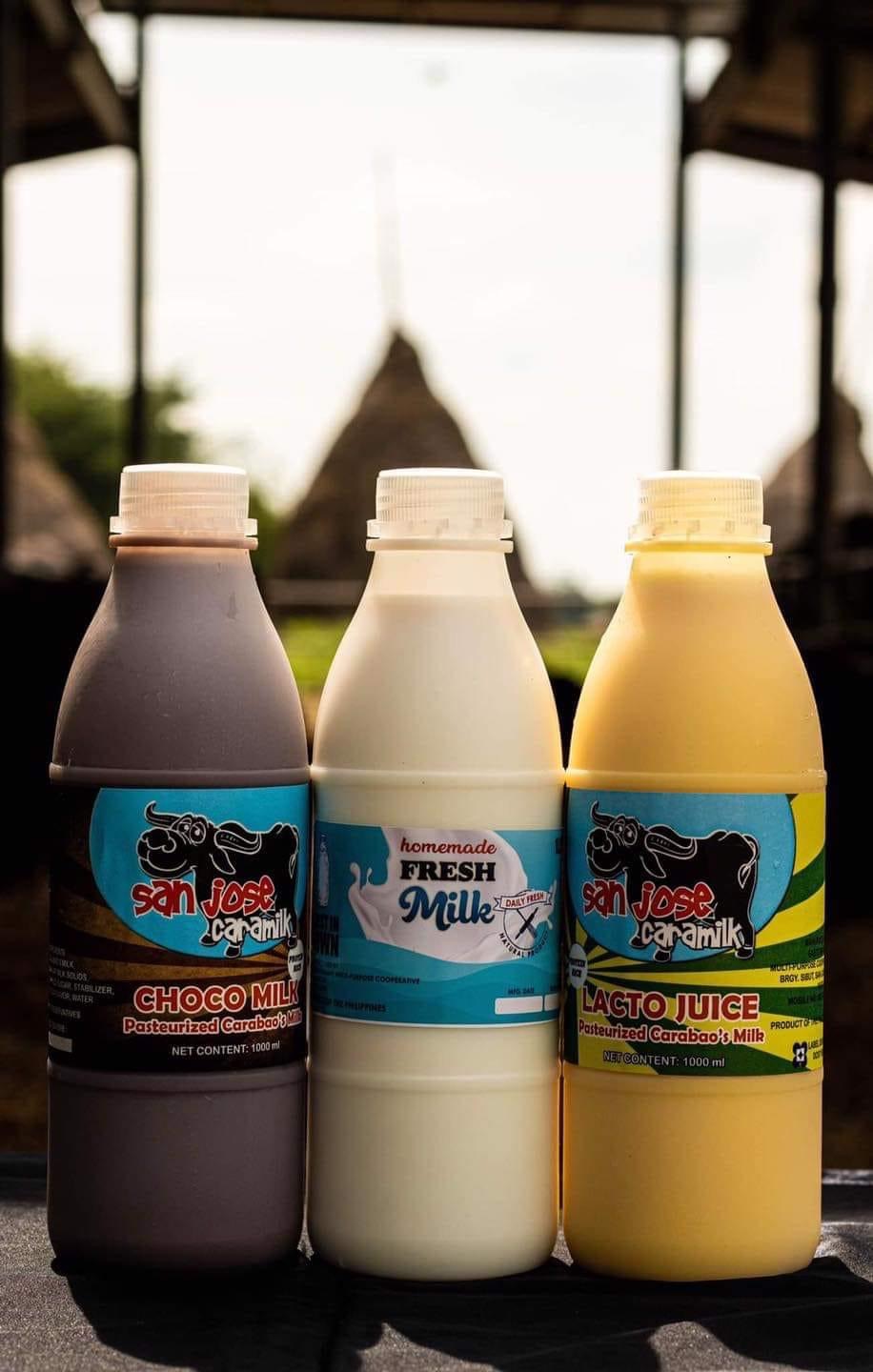
A vision for the future
Samuel is contemplating making additional investments in farm machinery to take his farm's productivity to new heights. Recognizing the potential benefits of modern agricultural equipment, he aims to optimize his farming operations.
He expressed his desire to witness two significant improvements in the agricultural industry in the Philippines: he hopes for better irrigation systems to be implemented in rural farming areas and also advocates for the adoption of advanced technologies in dairy farming.
Samuel believes that “Buffalo dairying requires passion, commitment, courage, and the ability to set clear business plans and goals to succeed.” These qualities form the foundation for a profitable and sustainable operation of a buffalo dairy farm.
Photo courtesy of Mercader’s Dairy Farm
Read more about farming and gardening at agriculture.com.ph